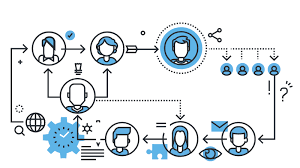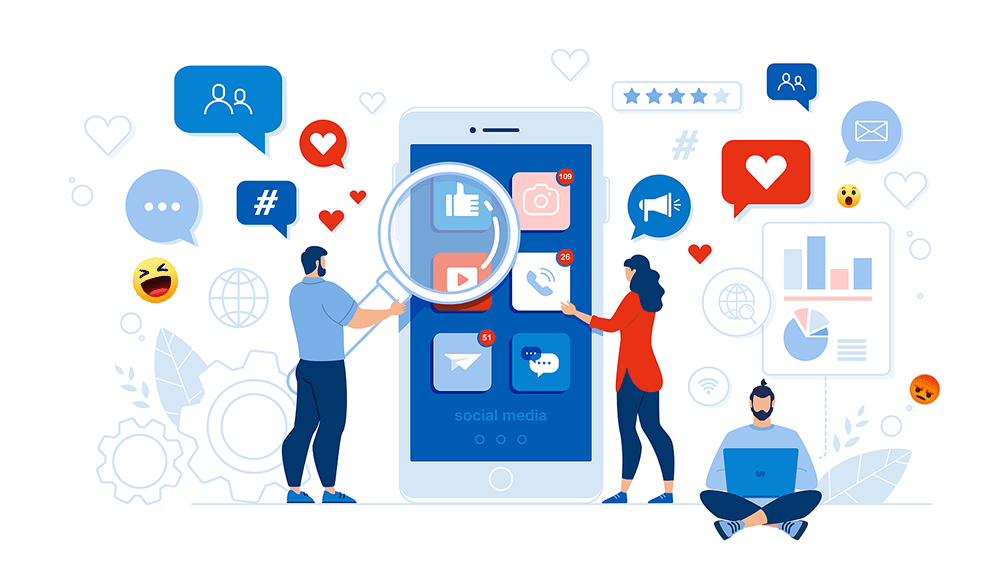
Table of Contents
- How to Automate General and Administrative Work with Machine Learning
- How Machine Learning Can Help with Human Resources and Talent Acquisition
- How Machine Learning Can Help with Business Intelligence and Analytics
- How Machine Learning Can Help with Software Development
- How Machine Learning Can Help with Marketing
- How Machine Learning Can Boost Sales
- How Machine Learning Can Help with Customer Support
- How Machine Learning Can Help with Content Creation
A 2017 study by McKinsey & Company, a global management consulting firm, estimates that 30 % of business tasks done by 60 % of occupations can be automated using artificial intelligence, machine learning, and robotics. Professional services firm PricewaterhouseCoopers (PwC) conducted a similar analysis covering twenty-nine countries in a report titled, “Will robots steal our jobs?” In their report, PwC predicts that automation could replace around 30% of jobs by the mid-2030s.
Today, machine learning can be used to automate activities that would take longer and be more expensive if done by humans. If you’re a business owner or executive, now is a great time to ask yourself: what activities can be automated in your business? Could automation help my employees eliminate repetitive—and often boring—tasks?
This article lists seven categories of less-than-exciting tasks that are ideal for automation through machine learning (and may even be handed off willingly by your employees).
How ML Can Help with General and Administrative Work
Finance and Accounting
Your finance and accounting employees likely work with plenty of spreadsheets. Luckily for them, spreadsheet tasks can typically be easily automated. Check out our case study with ANZ Bank for inspiration on automating financial workflows using Python.
- ANZ Corporate Training: Case Study
- Natural Language Processing and its Applications in the Finance Sector
Legal and Compliance, Records Maintenance, and General Operations
Many tasks in these areas can be repetitive, yet detailed. By automating them, they can be done more quickly—and likely more accurately—by machines.
How ML Can Help with Human Resources and Talent Acquisition
Matching Candidates to Positions
Machines can be trained on data collected from previous successful applicants to help recruiters make a hire.
Machine learning can model your employees’ ideal career paths. Using employee profile data, machine learning can match an employee’s goals, experience, and interests with opportunities within an organization to build teams designed for success. Machine learning can also use predictive analysis to mitigate the risk of losing employees and ease HR concerns about employee retention.

How ML Can Help with Business Intelligence and Analytics
Businesses in any sector can use machine learning to take large quantities of data and use it to help maximize performance. Not only can machine learning be used to analyze your data and identify potentially profitable relationships, but it can do so faster than your fastest human employee.
Article continues below
Want to learn more? Check out some of our courses:
How ML Can Help with Software Development
Writing repetitive code can try the attention span of even the most enthusiastic developer. Because code is modular, machine learning can be used to independently generate it. Many apps have already been built that can automatically produce portions of code for a variety of uses, one common example being web design.
Intelligent programming assistants are another example of software development ML tools that are already used to decrease the time spent on reading documentation or debugging code. Some examples of intelligent programming assistants include Kite for Python and Codota for Java. Additionally, machine learning is also used in automatic analytics and error handling, where machine learning-based software tools can automatically flag errors within a system.
How ML Can Help with Marketing
Digital Ad Optimization
Machine learning is already used by many businesses to make pricing, placement, and creative decisions in digital advertising.
Recommendations and Personalization
Applying recommendations and personalization to products, emails, and marketing touch points can be automated using machine learning.
Revenue Attribution
Accurately attributing revenue to advertising can be a challenging task, especially for marketing and sales teams. Eliminate human bias in revenue analysis and attribution by using machine learning models.
How ML Can Help in Sales
Customer Segmentation
Customer segmentation is used by marketing teams to divide customers into groups with the goal of better targeting ad campaigns at the right people. It is also used by sales teams to divide prospects and customers to target sales promotions, incentives, and account division within a sales team. Previously, segmentation was a time-consuming task.
But now, machine learning models can be used to process customer data and find customer segments that would otherwise be complicated for a human to spot.
Lead Qualification and Scoring
Machine learning can make accurate predictions about potential and current customers.
Sales Development
Machine learning can be used to boost your sales by executing customer segmentation of your current and prospective clients, which in turn can help increase the efficiency and productivity of your sales development reps.
Sales Analytics
Sales analytics are often done using an Excel file. Instead of having employees input data into Excel, machine learning-based tools can use your data to generate sales predictions so that you can plan for the future of your sales.

How ML Can Help with Customer Support
Conversational Agents
You’ve probably already encountered conversational agents in your day-to-day life. Examples of them include digital assistants, chatbots, and autocomplete.
Social Listening
Machine learning can be used for sentiment analysis and biometrics from audio-visual data.
Customer Churn
Unsatisfied customers can churn and abandon your brand, and your churn rate is a significant indicator of the health of your business. Machine learning can be trained on data to identify potential churners so that you can take action and gain them back.
Lifetime Value
Knowing your client’s lifetime value can help you retain your most profitable clients. Machine learning can help you predict lifetime values and identify your key customers.
Automating tasks using machine learning in your business can be a challenging but rewarding decision. Many industries are already using automation to simplify employee jobs, and in the face of potential economic slowdowns, automation can help you increase your efficiency and stay competitive. Are you interested in automation for your business?
How ML Can Help with Content Creation
With the advent of generative AI such as ChatGPT new avenues of using ML to create content have become available. An essential part of trying to reach new customers is marketing online, and that usually includes brainstorming new ideas, creating a content calendar, writing articles, creating scripts for videos, and much more. Now, many of those tasks can be automated to speed up content creation.
In close relation, modern AI models can also help us deliver that content to potential customers. For example, e-mail marketing has always been an important tool for increasing outreach, but it has also proven to be pretty hard to create an efficient email marketing campaign. In the past, creating a template made every email help in making the task less repetitive, but also made the emails sound boring and uninspired. Using Machine Learning can make sure that the emails feel more unique because AI models can take a template and add flourishes to text to make it sound more personal and to make it better suit each customer you are trying to reach.
In conclusion, machine learning (ML) has the power to revolutionize the way we approach mundane and repetitive tasks by automating them with remarkable efficiency. As we continue to advance technologically, the demand for rapid and precise solutions will only grow, making ML-driven automation increasingly vital. Embracing these intelligent systems not only streamlines our workflows but also enables us to focus on more creative and innovative pursuits, ultimately driving progress across various industries.



